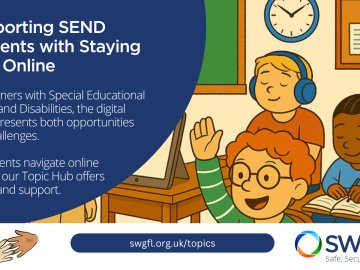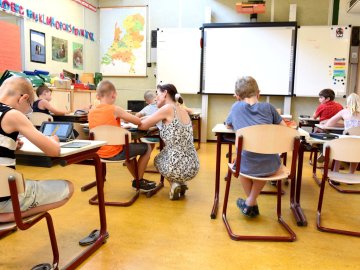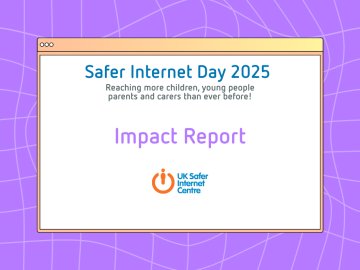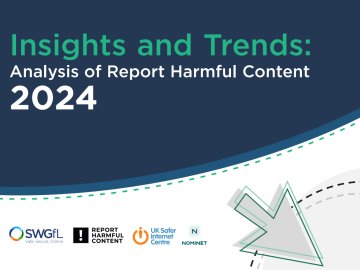As another school year ends, our young Interface podcasters reflect on the lessons they have learned, and what they would have liked to have known about the internet when they were younger.
In the latest episode of Interface, co-presenters Ailish and Princess are joined by Gareth Cort to discuss their own experiences and challenges growing up with the internet. Their insights provide considerations for educators to consider as children and young people continue to navigate the online world.
Protecting Personal Information and Privacy
Throughout the conversation, Gareth and Princess explore the importance of ensuring that social media presence is not entirely public, and how young people can adjust privacy settings with the support of teachers and parents, to implement private profiles. The presenters discuss their own experiences with their social media privacy when they were younger, talking about how frequently they would receive random friend requests from strangers online. With this experience, they emphasise the importance of protecting personal information, and how educators can help to provide guidance around staying safe online. For more information about what you can do as a professional working with young people, to help them stay safe on social media, we have created a video with further guidance.
Alongside this discussion, Gareth explores the tendency for people, especially teenagers, to avoid reading privacy and security terms and conditions when signing up for online services. In response, they discuss how frequently children can ignore age requirements and verifications online. They also consider problems that may arise by allowing young users to dismiss age requirements, while simultaneously encouraging them to behave responsibly.
Addressing Body Image and Negative Online Influence
The podcast also considers the impact of online influences and negative body image among young people. Ailish and Jessica express concerns about the growing number of children, particularly girls, who feel dissatisfaction with their appearance and become increasingly concerned over their body image.
In the discussion, they look at the prevalence of photoshopped images and the emergence of AI-generated realistic, yet fictional content, and how this can exacerbate body image issues. However, they also discuss recent positive shifts in body image representation online, and how crucial it is for educators to consistently reinforce the message that not everything online is real, to discourage comparisons and dangerous trends. We have explored various ways in which social media can be seen to contribute to body image issues, alongside the more positive shift, in this guidance.
Throughout the conversation, Gareth, a teacher and parent, suggests that engaging in conversations around body image and the internet should focus more on people's motivations and behaviours online. Furthermore, they discuss the importance of ensuring schools have knowledgeable educators who can help children navigate online spaces, report online harms, and provide support.
Safeguarding and Supporting Students
Finally, the podcast addresses how there is a significant cultural shift occurring in schools regarding safeguarding children with this shift recognising that young people may make mistakes online. The presenters discuss how safeguarding has become a top priority, with designated individuals in schools being trained to take proactive steps by reaching out to appropriate services and organisations.
The presenters suggest that simply telling young people not to engage in certain behaviours online is not effective, and that it is important to seek young people's insights and involve them in discussions about how they want to be helped. We have also created Whisper for school communities, an anonymous reporting tool that encourages young people to speak up and reach out to their school about any concerns they may have.
Further Support
Teachers can find guidance and materials which encourage digital literacy and increases online safety knowledge in the classroom, through our ProjectEVOLVE tool, which assists professionals as they educate, guide and support young people through their use of technology.
Alongside this, if you work with young people and have any concerns about online safety, you can contact the Professional Online Safety Helpline for support around online safety issues that you, or children and young people in your care, may face.






